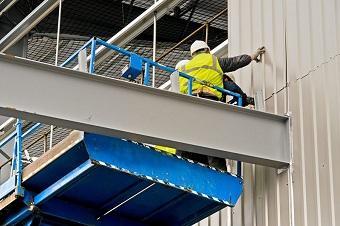Legislation to ban the use of combustible cladding in Scotland on residential and other high-risk buildings above 11m has been laid before the Scottish Parliament, which will make it the strictest limitation on the use of such cladding in the UK.
In addition, the highest risk metal composite cladding material will be banned from any new building of any height, with replacement cladding also required to meet the new standards.
Combustible materials are defined as anything less than Euroclass A1 or A2 under BS EN 13501-1. Previously, cladding systems on high-rise blocks have either had to use non-combustible materials, or pass a large-scale fire test under BS 8414. The latter will no longer be acceptable as evidence of compliance.
The move follows work carried out through the Building Standards Fire Safety Review Panel to consider introducing a ban on the highest risk cladding products and the continued role of large-scale fire testing for facades.
“This is the third set of changes made to fire safety standards for cladding in Scotland since the tragic Grenfell Tower Fire, requiring any cladding on domestic or other high-risk buildings above 11m to be strictly non-combustible,” said Building Standards Minister Patrick Harvie.
“Taken together with our new fire alarms regulations, covering all homes in Scotland regardless of ownership, this is yet another step on the Scottish Government’s mission to minimise the risk of deaths and injuries from fire.
The combustible cladding ban will apply to all buildings with a storey 11m or more above the ground, and which contain:
• a dwelling
• a building used as a place of assembly or as a place of entertainment or recreation
• a hospital
• a residential care building or sheltered housing complex, or a shared multi-occupancy residential building
The changes to the fire safety requirements of cladding will be introduced on 1 June 2022, and have been brought in following public consultations in 2021. Supporting Technical Handbooks, which set out full details of the changes, will be published from the start of May.
The Royal Incorporation of Architects Scotland (RIAS) welcomed the new legislation, saying it “strongly recommends the banning of combustible materials on all high-risk buildings”.
The legislation also includes improvements to energy performance standards, aiming to make buildings easier to heat while ensuring they are well ventilated and comfortable to live in.








